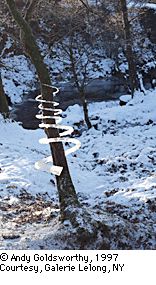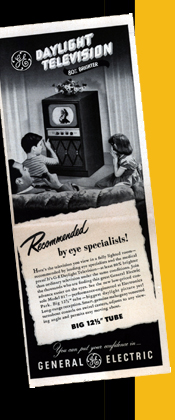Brad's favorite poetry:
Those Winter Sundays
by Robert E. Hayden
Sundays too my father got up early
And put his clothes on in the blueback cold,
then with cracked hands that ached
from labor in the weekday weather made
banked fires blaze. No one ever thanked him.
I'd wake and hear the cold splintering, breaking.
When the rooms were warm, he'd call,
and slowly I would rise and dress,
fearing the chronic angers of that house,
Speaking indifferently to him,
who had driven out the cold
and polished my good shoes as well.
What did I know, what did I know
of love's austere and lonely offices?
The Art of Disappearing
by Naomi Shihab Nye
When they say "Don't I know you?", say "No."
When they invite you to the party
remember what parties are like
before answering...
Someone telling you in a loud voice they once wrote a poem.
Greasy sausage balls on a paper plate.
Then reply.
If they say "we should get together"
say why?
It's not that you don't love them any more.
You're trying to remember something too important to forget.
Trees.
The monastery bell at twilight.
Tell them you have a new project.
It will never be finished.
When someone recognizes you in a grocery store
nod briefly and become a cabbage.
When someone you haven't seen in ten years appears at the door, don't start singing him all your new songs.
You will never catch up.
Walk around feeling like a leaf. Know you could tumble any second.
Then decide what to do with your time.
Retriever
by Faith Shearin
My father, in middle age, falls in love with a dog.
He who kicked dogs in anger when I was a child,
who liked his comb always on the same shelf,
who drank martinis to make his mind quiet.
He who worked and worked-- his shirts
wrapped in plastic, his heart ironed
like a collar. He who-- like so many men--
loved his children but thought the money
he made for them was more important
than the rough tweed of his presence.
The love of my father's later years is
a Golden Retriever-- more red
than yellow-- a nervous dog who knows
his work clothes from his casual ones,
can read his creased face, who waits for
him at the front door-- her paws crossed
like a child's arms. She doesn't berate him
for being late, doesn't need new shoes
or college. There is no pressure to raise her
right, which is why she chews the furniture,
pees on rugs, barks at strangers who
cross the lawn. She is his responsible soul
broken free. She is the children he couldn't
come home to made young again.
She is like my mother but never angry,
always devoted. He cooks for his dog--
my father who raised us in restaurants--
and takes her on business trips like
a wife. Sometimes, sitting beside her
in the hair-filled fan he drives to make
her more comfortable, my father's dog
turns her head to one side as if
thinking and, in this pose, more than
one of us has mistaken her for a person.
We would be jealous if she didn't make
him so happy-- he who never took
more than one trip on his expensive
sailboat, whose Mercedes was wrecked
by a valet. My mother saw him behind
the counter of a now-fallen fast food
restaurant when she was nineteen.
They kissed beside a river where fish
no longer swim. My father who was
always serious has fallen in love with
a dog. What can I do but be happy for him?
from The Owl Question
© Utah State University Press, 2002
The Quiet World
by Jeffrey McDaniel
In an effort to get people to look
into each other's eyes more,
and also to appease the mutes,
the government has decided
to allot each person exactly one hundred
and sixty-seven words, per day.
When the phone rings, I put it to my ear
without saying hello. In the restaurant
I point at chicken noodle soup.
I am adjusting well to the new way.
Late at night, I call my long distance lover,
proudly say I only used fifty-nine today.
I saved the rest for you.
When she doesn't respond,
I know she's used up all her words,
so I slowly whisper I love you
thirty-two and a third times.
After that, we just sit on the line
and listen to each other breathe.
September Visitors
by David Budbill
I'm glad to see our friends come:
talk, laughter, food, wine.
I'm glad to see our friends go:
solitude, emptiness, gardens,
autumn wind.
Requiem
by John Updyke
It came to me the other day:
Were I to die, no one would say,
"Oh, what a shame! So young, so full
Of promise -- depths unplumbable!"
Instead, a shrug and tearless eyes
Will greet my overdue demise;
The wide response will be, I know,
"I thought he died a while ago."
For life's a shabby subterfuge,
And death is real, and dark, and huge.
The shock of it will register
Nowhere but where it will occur.
Poetry Readings
by Charles Bukowski
poetry readings have to be some of the saddest damned things ever,
the gathering of the clansmen and clanladies,
week after week, month after month, year after year,
getting old together, reading on to tiny gatherings,
still hoping their genius will be discovered,
making tapes together, discs together,
sweating for applause
they read basically to and for each other,
they can't find a New York publisher
or one within miles,
but they read on and on
in the poetry holes of America,
never daunted,
never considering the possibility that their talent might be
thin, almost invisible,
they read on and on
before their mothers, their sisters, their husbands,
their wives, their friends, the other poets
and the handful of idiots who have wandered in from nowhere.
I am ashamed for them,
I am ashamed that they have to bolster each other,
I am ashamed for their lisping egos, their lack of guts.
if these are our creators,
please, please give me something else:
a drunken plumber at a bowling alley,
a prelim boy in a four rounder,
a jock guiding his horse through along the rail,
a bartender on last call,
a waitress pouring me a coffee,
a drunk sleeping in a deserted doorway,
a dog munching a dry bone,
an elephant's fart in a circus tent,
a 6 p.m. freeway crush,
the mailman telling a dirty joke
anything
anything
but
these.
Artists

Brad's favorite artist is Andy Goldsworthy. The main principle of Buddhist thought is impermanence. Andy Goldsworthy has integrated the idea of impermanence into much of his work, creating art that incorporates its own temporary, brief lifespan as part of its beauty. Goldsworthy says, "Each work grows, stays, decays. Process and decay are implicit. Transience in my work reflects what I find in nature." His art finds its beauty not only in its physical appearance, but in its very fleeting existence as well. Captured on film at its peak, we are intrinsically aware that the work will not last. It really helps me to see the joy & beauty in our own short lifetime.











